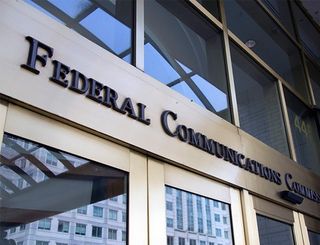Pallone to FCC: Don't Redefine OTTs as Cable Ops

Rep. Frank Pallone (D-N.J.) used his first media policy speech as ranking member of the House Energy & Commerce Committee to advise the FCC to "hit the pause button on regulating streaming video."
Pallone said he had two key messages. The first was to hit that button. (He was speaking remotely to a Duke video competition seminar from Washington, D.C., where he had to vote on a bill.)
FCC chairman Tom Wheeler has said to look for a final vote this fall on his proposal to define day-and-date over-the-top video services as MVPDs, at least as it regards access to programming. His stated goal is to insure nondiscriminatory access to programming, both cable and broadcast. To do that he is seeking to read out the "facilities-based" requirement in the definition of MVPD. Cable operators and over-the-top services alike have registered reservations about that move.
Pallone advised not to proceed along that path. "When it comes to adopting new policies, we all must ask ourselves whether new polices actually make people better off. In the case of defining online video providers as cable companies, I do not think we can say yes," he said.
But Pallone told his audience that he had not been hearing from constituents that they can't find the shows they want online. "In this market, consumers are beginning to have more programs to choose from, more ways to get them, and more options on prices."
He warned, on the other hand, that "regulating certain business models does risk stifling innovation...The FCC is doing a lot of good work... But when it comes to adopting new policies, we all must ask ourselves whether new polices actually make people better off," he said. "Right now, we cannot know what business models consumers will prefer. And we cannot know yet how to craft the proper consumer protections.
"Some have urged the FCC to help prop up some video business models through additional regulation," he said. "The companies that first asked for help claimed that new entrants must be defined as cable companies if they are to get access to content. They were essentially worried that they could not compete with traditional cable companies without importing cable regulations to the online world.
Broadcasting & Cable Newsletter
The smarter way to stay on top of broadcasting and cable industry. Sign up below
"But consumer demand since then has driven the market to create new business models and new ways to distribute programming."
He added a dig at MVPD pricing and broadcast retrans blackouts: "It is certainly true that even in today’s changing video landscape, my office still hears complaints from consumers about their pay TV providers—mostly about high programming bills or about blackouts." But he said he had not been hearing complaints about access to programming.
"I think that is because content is starting to break free from the traditional models," he said. "Networks have learned to supplement their old revenue streams by selling some of their shows to competing online providers. Some of these shows are older reruns, but some are new content. In this market, consumers are beginning to have more programs to choose from, more ways to get them, and more options on prices."
Contributing editor John Eggerton has been an editor and/or writer on media regulation, legislation and policy for over four decades, including covering the FCC, FTC, Congress, the major media trade associations, and the federal courts. In addition to Multichannel News and Broadcasting + Cable, his work has appeared in Radio World, TV Technology, TV Fax, This Week in Consumer Electronics, Variety and the Encyclopedia Britannica.

